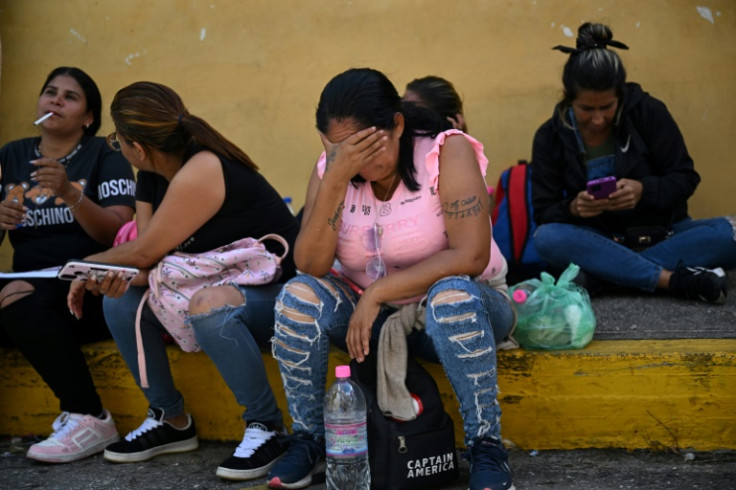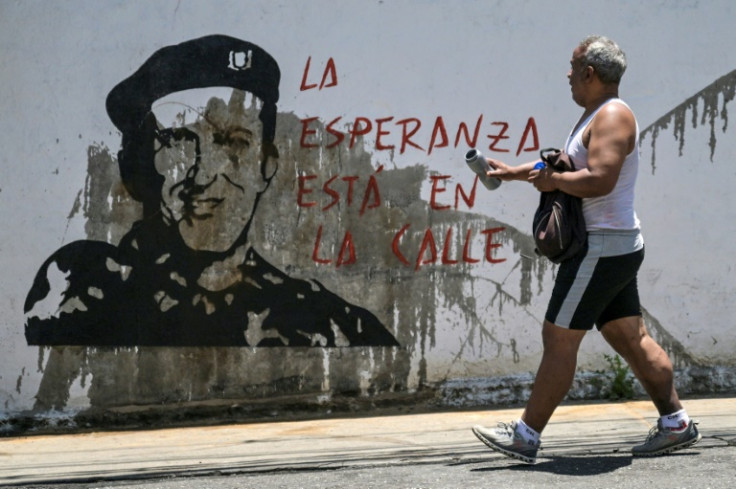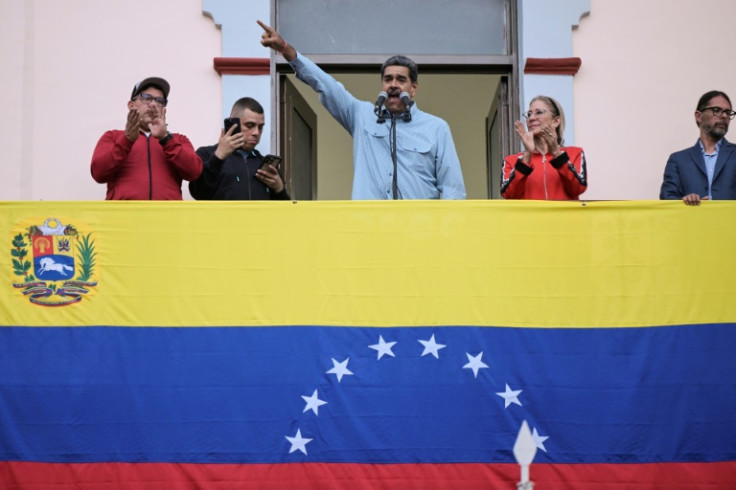
Venezuela on Friday was bracing for weekend protests, both from the opposition which disputes Nicolas Maduro's reelection, and the president's supporters, whom he has called to participate in the "mother of all marches" to back his win.
Uruguay and Argentina said they recognized opposition candidate Edmundo Gonzalez Urrutia as the president-elect of Venezuela, joining the United States and Peru in rejecting the official results which showed Maduro had been reelected.
The election authority on Friday ratified Maduro's win with 52 percent of the vote.
Maduro, 61, has reacted fiercely to criticism of his victory and has vowed to lock up opposition leader Maria Corina Machado and her presidential candidate Gonzalez Urrutia, saying they "should be behind bars."
Machado, who had been barred from running herself, has called on supporters to gather on Saturday "in every city" to protest Maduro's reelection.
"We must remain firm, organized and mobilized with the pride of having achieved a historic victory on July 28, and the awareness that to claim victory we will also go all the way," Machado said on social media.
Maduro, for his part, has called for daily mobilization and "the mother of all marches to celebrate the victory of peace" -- also on Saturday.
The NGO Foro Penal reported 11 dead in protests that erupted on Monday and Tuesday as Venezuelans took to the street in anger, saying their vote had been stolen. Machado said at least 20 people had been killed.
Venezuela's supreme court has summoned all presidential candidates to a hearing on Friday afternoon following Maduro's request that it initiate a process to investigate and certify the election result.
Machado wrote in the Wall Street Journal that she was in hiding and "fearing for my life," as were most opposition figures in the country.
Her political party, Vente Venezuela, wrote on the X social network on Friday that their headquarters had been vandalized by gunmen.
"Six unidentified hooded men overpowered the security guards, threatened them and began to paint graffiti, break doors and seize equipment and documents," it said.
Maduro's victory defied pre-election polls and set off a chorus of global condemnation
The opposition claims that it has copies of more than 80 percent of ballots cast and that Gonzalez Urrutia obtained 67 percent of the vote.
Top US diplomat Antony Blinken said Thursday there was "overwhelming evidence" that Gonzalez Urrutia had won the election.
On Friday, Argentine Foreign Minister Diana Mondino said that Gonzalez Urrutia was the "legitimate winner and president-elect." Peru has also recognized the 74-year-old retired diplomat as the rightful winner.
And Uruguay Foreign Minister Omar Paganini said "it is clear" Gonzalez Urrutia "obtained the majority of votes."
Those three countries are among eight critical Latin American nations whose diplomatic staff have been asked to leave Venezuela since the election. Caracas also withdrew its staff from those countries.
Brazil has assumed custody of the Peruvian embassy as well as the Argentine embassy, which is housing six Venezuelan opposition figures seeking safety from authorities.
In a joint statement, the governments of Brazil, Colombia and Mexico urged an "impartial verification" of the result, also calling for Caracas to publish voting data broken down by polling stations.
Sunday's elections were held in the shadow of Maduro's warnings of a "bloodbath" if he were to lose, and amid widespread fear the vote would be rigged.
Authorities said more than 1,000 people were arrested in protests that erupted after the election.
Maduro has led the oil-rich country since 2013, presiding over a GDP drop of 80 percent that pushed more than seven million of once-wealthy Venezuela's 30 million citizens to emigrate. Experts blame economic mismanagement and US sanctions.
He is accused of locking up critics and harassing opponents in a climate of rising authoritarianism.
Maduro's previous reelection, in 2018, was rejected by dozens of Latin American and other countries, including the United States and EU members.
Years of damaging US sanctions have failed to dislodge the president, who enjoys loyalty from the military leadership, electoral bodies, courts and other state institutions, as well as the backing of Russia, China and Cuba.



.jpg?w=600)





